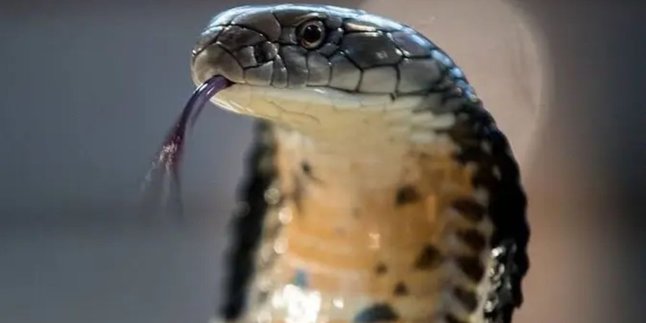
The Meaning of Babies Getting Their Upper Teeth First According to Javanese Primbon: Myth or Fact?
The growth of teeth in babies is a developmental stage eagerly awaited by many parents. However, various myths often arise regarding the order of baby teeth growth, including beliefs in Javanese primbon about the meaning of babies getting their upper teeth first. This article will thoroughly discuss the myths and facts surrounding baby tooth growth, as well as provide scientific guidance for maintaining your little one's dental health.
1. Understanding the Process of Baby Tooth Growth

baby (credit: pexels.com)
The growth of teeth in babies is a natural process that typically begins around the age of 6 months. However, the timing of the first tooth can vary for each baby. Some babies may even experience tooth growth earlier or later than average.
The process of baby tooth growth involves several stages:
- Formation of tooth buds in the jaw since pregnancy
- Development of tooth roots and supporting tissues
- Movement of teeth towards the surface of the gums
- Teeth breaking through the gums (eruption)
The sequence of baby tooth growth usually follows a certain pattern, although it can differ from child to child. Generally, the first teeth to appear are the lower central incisors, followed by the upper central incisors. However, it is also not uncommon to find babies who grow their upper teeth first.
2. Meaning of Baby Growing Upper Teeth First According to Javanese Primbon
In Javanese tradition, there are various beliefs related to the growth of baby teeth. One of them is the notion that a baby who grows upper teeth first has a special meaning. Some interpretations from Javanese primbon regarding this include:
- The baby will have strong leadership qualities
- The child will become a respected figure in society
- The little one is predicted to hold a high position in the future
- The baby is believed to become the backbone of the family
However, it is important to remember that these interpretations are part of traditional beliefs and do not have a scientific basis. The growth of baby teeth is more influenced by genetic factors and individual development, rather than the order in which specific teeth appear.
3. Scientific Facts Behind Baby Tooth Growth
From a medical perspective, the order in which baby teeth grow does not have a significant impact on the child's development or future. Here are some scientific facts about baby teeth growth that should be known:
- Normal variation: Each baby has a unique pattern of tooth growth that can vary.
- Genetic factors: The timing and order of tooth eruption are greatly influenced by hereditary factors.
- Nutrition: Adequate nutritional intake plays an important role in supporting healthy tooth growth.
- Jaw development: Tooth growth is also related to the development of the baby's jaw structure.
Child dental health experts emphasize that what is most important is to ensure that tooth growth occurs properly and healthily, not the order in which specific teeth appear.
4. Signs That a Baby Is Starting to Teethe

baby (credit: pexels.com)
Recognizing the signs that a baby is starting to teethe can help parents provide appropriate care. Some common indications include:
- Gums appear swollen or red
- Baby bites or chews on objects more frequently
- Increased saliva production
- Changes in eating or sleeping patterns
- Baby becomes more fussy or irritable
- Baby's cheeks are red or feel warm
It is important to note that not all babies will show the same symptoms when they start teething. Some babies may not show any clear signs at all.
5. How to Care for a Baby's Newly Grown Teeth
Early dental care for babies is very important for maintaining long-term oral health. Here are some tips for caring for a baby's newly grown teeth:
- Clean the gums and teeth with a damp cloth or a special baby toothbrush
- Use toothpaste with fluoride content that is safe for babies
- Avoid giving sweet drinks in bottles, especially during sleep
- Introduce the use of a cup early to reduce dependence on bottles
- Provide foods rich in calcium and vitamin D to support tooth growth
- Schedule the first visit to a pediatric dentist before the age of 1 year
Consistency in dental care from an early age will help establish good habits that last into adulthood.
6. Myths and Facts About Baby Tooth Growth
In addition to the Javanese primbon beliefs, there are various other myths surrounding the growth of baby teeth that need to be clarified. Here are some common myths along with the facts:
Myth: Babies whose teeth grow earlier will be smarter
Fact: There is no correlation between the timing of tooth growth and a child's intelligence.
Myth: Teething always causes fever
Fact: While some babies may experience a slight increase in body temperature, teething does not directly cause a high fever.
Myth: Baby teeth do not need care because they will be replaced by permanent teeth
Fact: Caring for baby teeth is very important to maintain oral health and ensure proper growth of permanent teeth.
Myth: Applying alcohol to the gums can relieve pain during teething
Fact: This practice is dangerous and can cause irritation or poisoning in babies.
7. When Should You Consult a Doctor?

baby (credit: pexels.com)
Although tooth growth is a natural process, there are several conditions that may require medical attention. Parents should consult a doctor or pediatric dentist if:
- The baby has not shown signs of tooth growth by the age of 1 year
- There are signs of infection in the baby's gums or mouth
- The baby experiences a high fever or other unusual symptoms during the teething process
- The baby's teeth are growing in an abnormal position or shape
- There are changes in color on the baby's teeth
Regular check-ups with a pediatric dentist are also important to monitor tooth development and prevent oral health problems early on.
8. The Role of Nutrition in Supporting Healthy Tooth Growth
Proper nutrition plays a crucial role in supporting healthy tooth growth in babies. Several important nutrients for tooth development include:
- Calcium: Important for the formation of strong tooth structure
- Vitamin D: Helps in the absorption of calcium and the mineralization of teeth
- Vitamin C: Supports gum health and the supporting tissues of teeth
- Phosphorus: Plays a role in the formation of tooth enamel
- Protein: Important for the growth and repair of tooth tissues
Parents can ensure adequate nutritional intake through breast milk, fortified formula, and balanced complementary foods appropriate for the baby's age.
9. Child Tooth Development After Infancy
Tooth growth does not stop in infancy. Child tooth development continues into adolescence. Some important stages in child tooth development include:
- Age 2-3 years: Generally, all primary teeth have fully emerged
- Age 6-7 years: The first permanent teeth start to emerge, and primary teeth begin to fall out
- Age 12-13 years: Most permanent teeth have emerged, except for the back molars
- Age 17-21 years: Emergence of the third molars (wisdom teeth)
During this growth period, consistent dental care and regular check-ups with a dentist remain important to ensure optimal development.
10. Genetic Influence on Baby Tooth Growth

baby (credit: pexels.com)
Genetic factors play a significant role in determining the pattern of baby tooth growth. Several aspects influenced by genetics include:
- Timing of the first tooth emergence
- Order of tooth growth
- Number and shape of teeth
- Tendency towards certain dental issues
Research shows that if parents experience delays or accelerations in their tooth growth as infants, there is a possibility that their children will experience similar patterns. However, this is not an absolute rule and individual variations may still occur.
11. Baby Dental Care in Various Cultures
Various cultures around the world have unique traditions and beliefs related to the growth of baby teeth. Some examples include:
- In some European countries, lost baby teeth are kept under the pillow for the "tooth fairy"
- In Islamic tradition, there is a recommendation to perform aqiqah when the baby grows their first tooth
- Some tribes in Africa celebrate the growth of the first tooth with special ceremonies
- In Japan, baby teeth that fall from the lower jaw are thrown onto the roof, while those from the upper jaw are thrown down to the floor
Although these traditions are culturally interesting, it is important to prioritize dental care based on modern health guidelines.
12. Managing Discomfort During Baby Teething
The teething process can cause discomfort in babies. Some safe ways to relieve discomfort include:
- Providing chilled teething toys from the refrigerator
- Gently massaging the baby's gums with clean fingers
- Using a clean cloth dampened with cold water to rub the gums
- Offering cold foods like chilled fruit puree (for babies over 6 months)
- Distracting the baby with fun games or activities
If the discomfort is very bothersome, consult a doctor about the use of safe pain relief medications for babies.
13. Common Questions About Baby Teeth Growth

baby (credit: pexels.com)
Here are some frequently asked questions by parents regarding baby teeth growth:
Q: Is it normal for baby teeth to grow out of order?
A: Yes, variations in the order of tooth growth are normal and should not be a cause for concern as long as the teeth are growing well.
Q: How long does the teething process last?
A: The teething process can last from a few days to several weeks for each tooth.
Q: Should babies be given pain relief medication during teething?
A: In most cases, medication is not necessary. However, if the baby is very uncomfortable, consult with a doctor for safe options.
Q: When should toothpaste be introduced for babies?
A: Fluoride toothpaste that is safe for babies can be used as soon as the first tooth appears, in very small amounts (about the size of a grain of rice).
Q: Does breastfeeding affect the growth of baby teeth?
A: Breast milk contains essential nutrients for healthy tooth growth. However, it is important to clean the baby's gums and teeth after feeding to prevent tooth decay.
14. Conclusion
The growth of teeth in babies is a natural process that is unique to each child. Although there are various myths and traditional beliefs, including the belief that babies grow their upper teeth first according to Javanese primbon, the most important thing is to ensure proper and consistent dental care. Understanding scientific facts, paying attention to the signs of teething, and maintaining a routine can help keep a child's teeth healthy from an early age. Parents are advised to always consult with health professionals for more specific guidance tailored to their child's individual needs.
(kpl/dhm)
Disclaimer: This translation from Bahasa Indonesia to English has been generated by Artificial Intelligence.


















